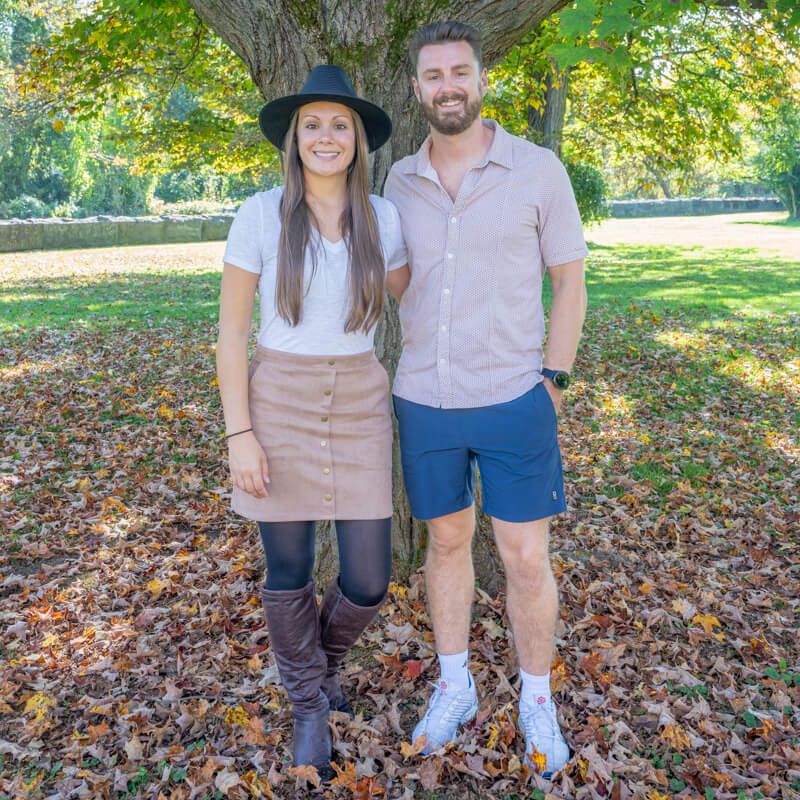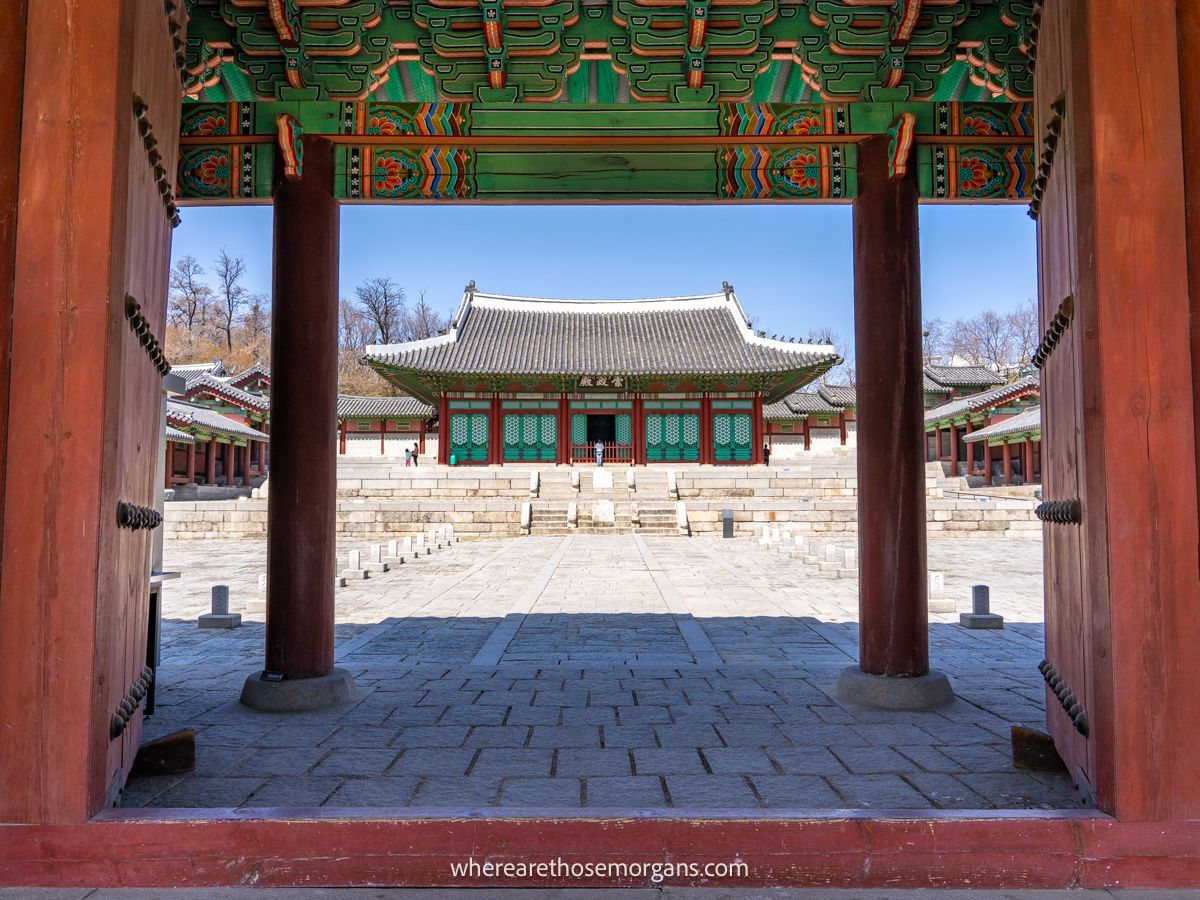Gyeonghuigung Palace is the least visited palace in Seoul and is not well known to most visitors. It was built to fulfill a prophecy that the site would produce kings and throughout history, ten different kings called this complex home. This is the only royal palace in Seoul that’s free to visit and it does not need advanced tickets.
In this guide, we’re going to show you the highlights of Gyeonghuigung Palace including what you should try to see during your visit.
Our Seoul Experience
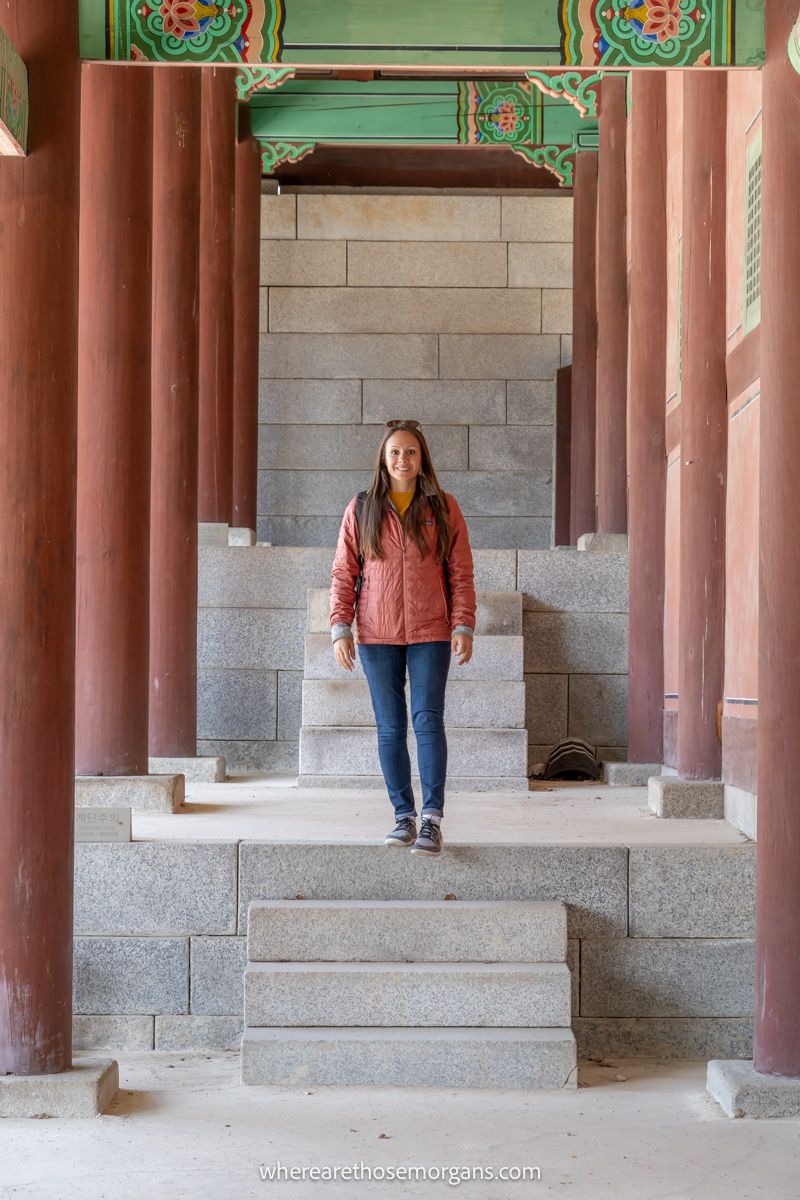
We spent 14 days exploring Seoul in March 2023. During our trip, we personally visited Gyeonghuigung Palace as well as the 4 other royal palaces in Seoul. This is one of the lesser known palaces in the city, but you can visit for free.
The palace is located next to the Seoul Museum of History so you can easily see both in one day. We visited the palace first and then made our way over to the history museum. Our guide includes the highlights you shouldn’t miss inside Gyeonghuigung. Read more about us.
Gyeonghuigung Palace History
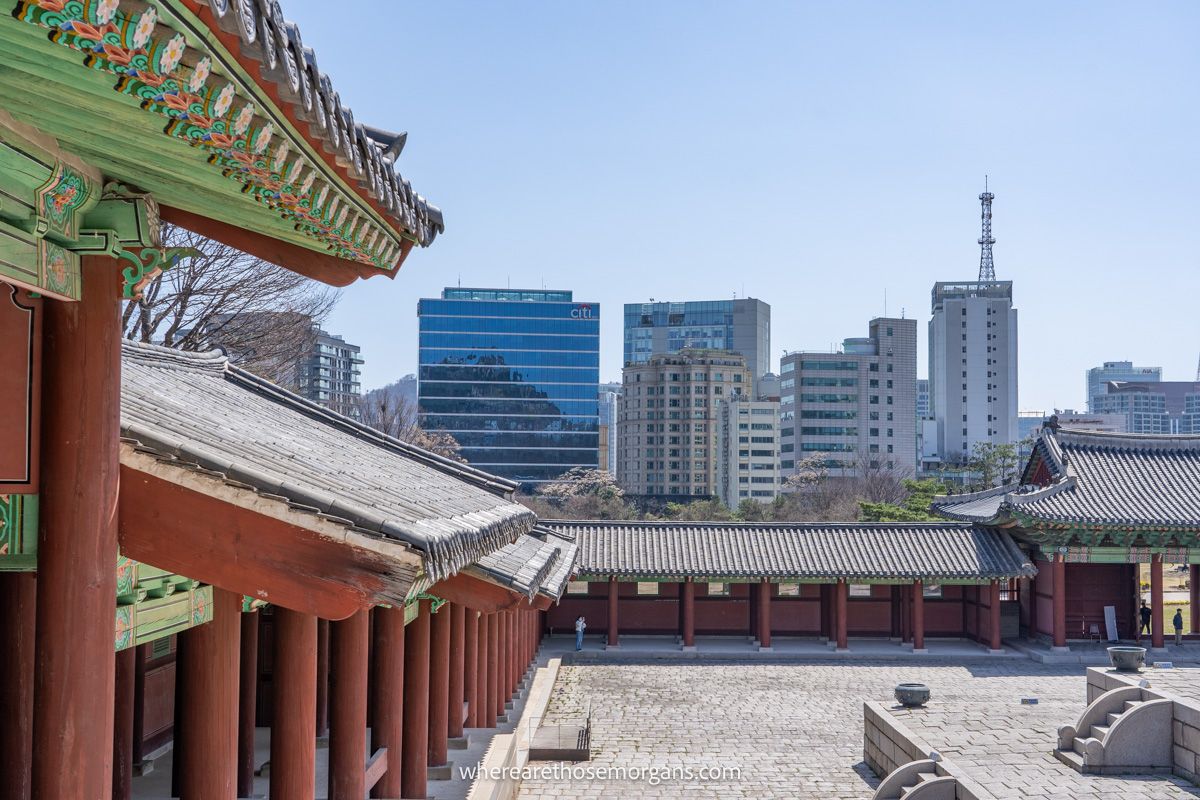
Construction of Gyeonghuigung Palace was completed in 1620 during the reign of Gwanghaegun, the 15th king of Joseon. It’s commonly referred to as the western palace due to its location west of the main palace, Gyeongbokgung.
This palace is unique because it reflects the land that surrounds the entire complex. A famous painting known as Seogwoldoan portrays a sketch of the original western palace illustrating these grounds once contained 190 buildings and gates.
During the Japanese occupation, sadly many buildings were destroyed to create space for Gyeongseoung Middle School. Unfortunately, Gyeonghuigung Palace was then reduced to half it’s original size. After Korea’s liberation in 1946, Seoul High School was built and remained on the site until 1978.
It wasn’t until 1985, the Seoul government decided to rebuild a few buildings on the palace grounds. Many excavations have since been completed and three palace buildings have been fully restored which we can see today.
Visitor Information
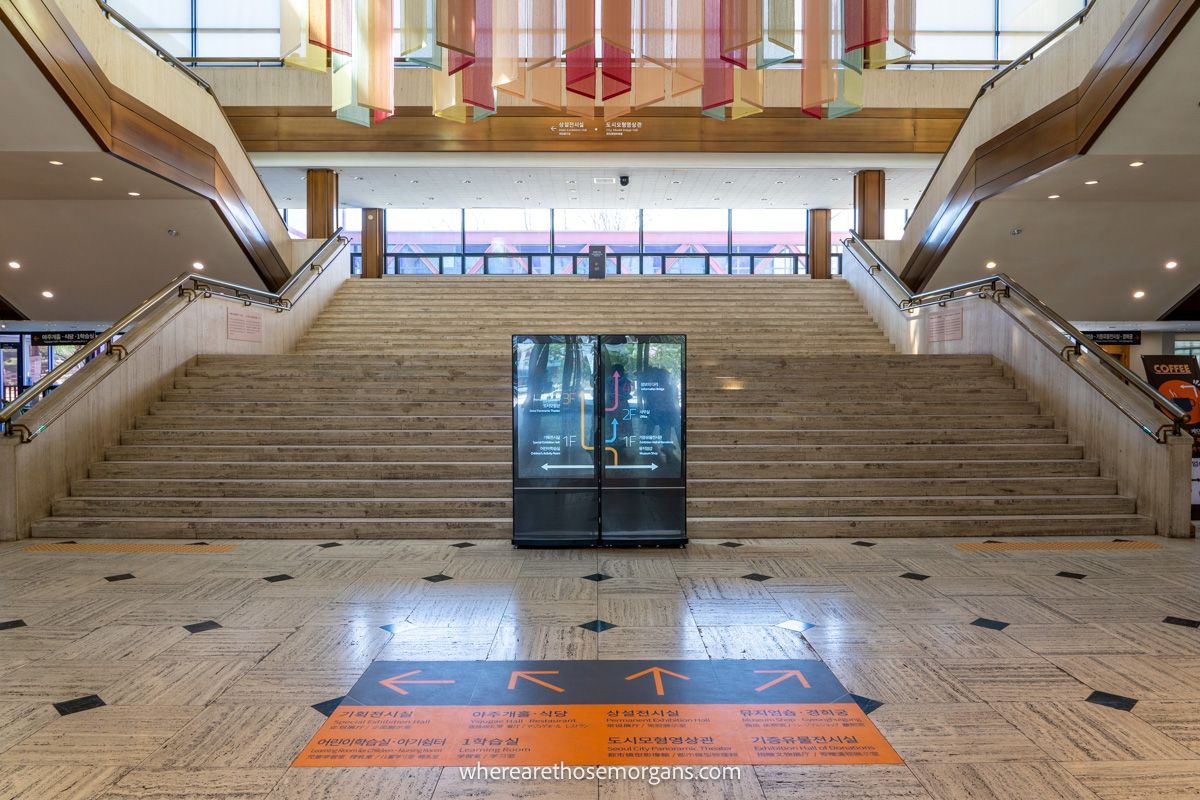
Gyeonghuigung Palace is located near the Seoul Museum of History and the Gyeonghuigung Annex Building of the Seoul Museum of Art.
- Address: 161 Sajik-ro, Jongno-gu, Seoul, South Korea
- Location: Google Maps
Here are the best subway stations for visiting:
- Seodaemun Station (exit 4, line 5)
- Gwanghwamun Station (exit 7, line 5)
The palace is open every day of the week from 9:00 to 18:00, except on Monday when it’s closed. Admission to Gyeonghuigung Palace is free for all visitors making this the only free royal palace in Seoul.
But unlike other palaces in the city, there are no guided tours available. So if you’re interested in taking a tour of the complex, this Evening Ghost Walk is very popular.
6 Best Things To Do In Gyeonghuigung Palace
As we mentioned earlier, there are only three buildings to see when visiting Gyeonghuigung Palace. Unfortunately, visitors are not allowed to enter any of the buildings, but you can look inside several structures. Keep in mind this complex is a representation of the original palace.
Here is what to see at Gyeonghuigung Palace:
1. Heunghwamun Gate
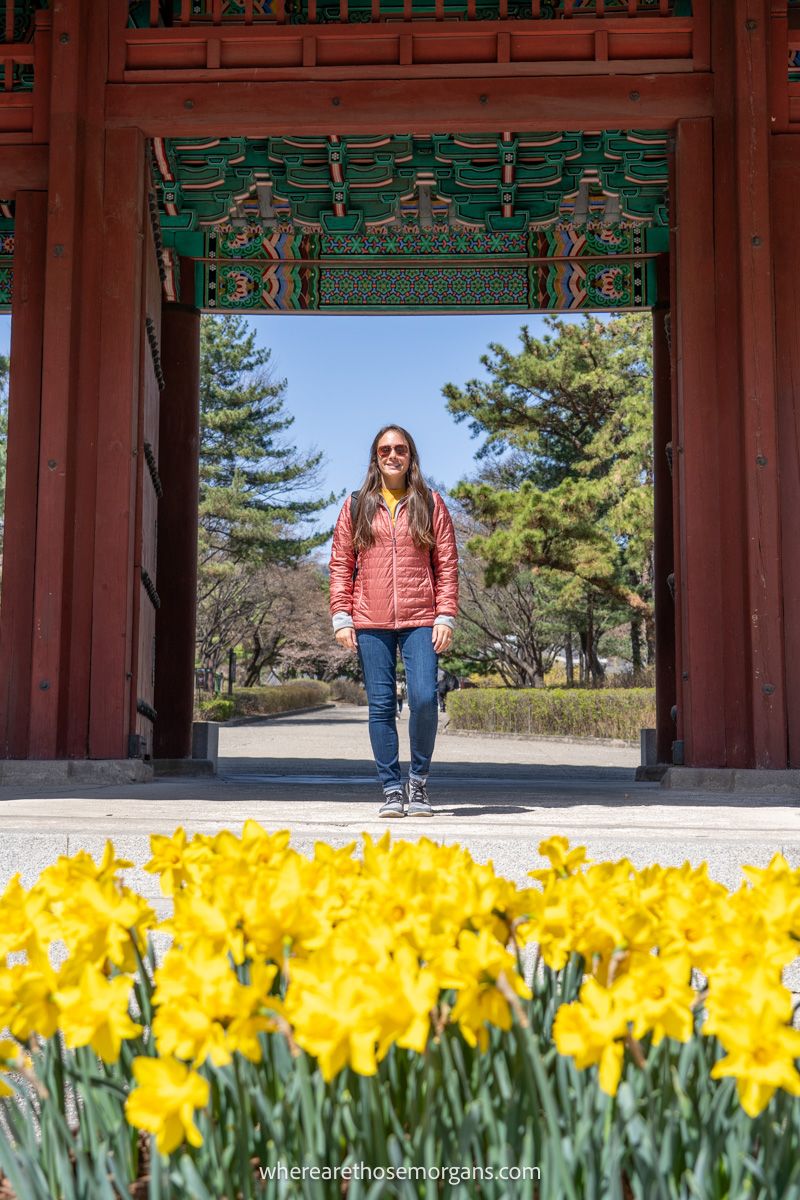
The main gate of Gyeonghuigung Palace is Heunghwamun Gate. It has officially been designated as a Cultural Heritage Site and this is the gate you’ll walk through the enter the palace. If you want to get a photo of a gate without a lot of people, this is your opportunity.
The Heunghwamun Gate has an interesting history because it was originally located next to the current Salvation Army Center facing the direction of Jongno Avenue. However, it was then reconstructed as the main gate of Bakmunsa, a shrine to a Japanese general. But in 1988, Heunghwamun Gate was fully restored and moved back to it’s current location.
Travel Tip: If you’re visiting in spring, be sure to keep an eye out for beautiful blooming flowers near the entrance.
2. Geumcheongyo Bridge
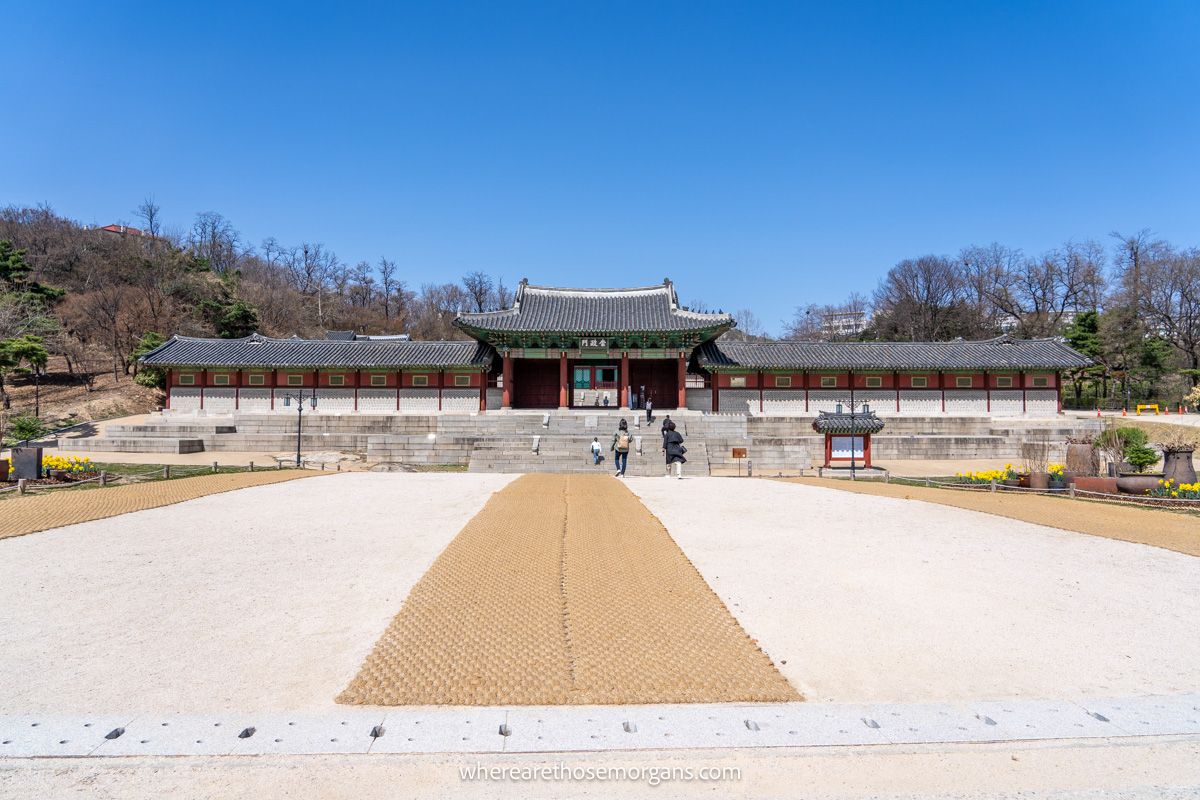
Similar to other palaces in Seoul, you’ll cross a bridge to enter the palace. The Geumcheongyo Bridge is a beautiful stone feature which originally lead over a moat into the Gyeonghuigung Palace complex after entering through Heunghwamun Gate.
Completely buried by Japanese occupation, a goblin was once prominent on the side of the bridge to help ward off evil spirits. But in 2001, the Seoul government helped to restore the sections of the bridge we can see today.
Travel Tip: There is also a Geumcheongyo Bridge at Changdeokgung Palace.
3. Sungjeongjeon Hall
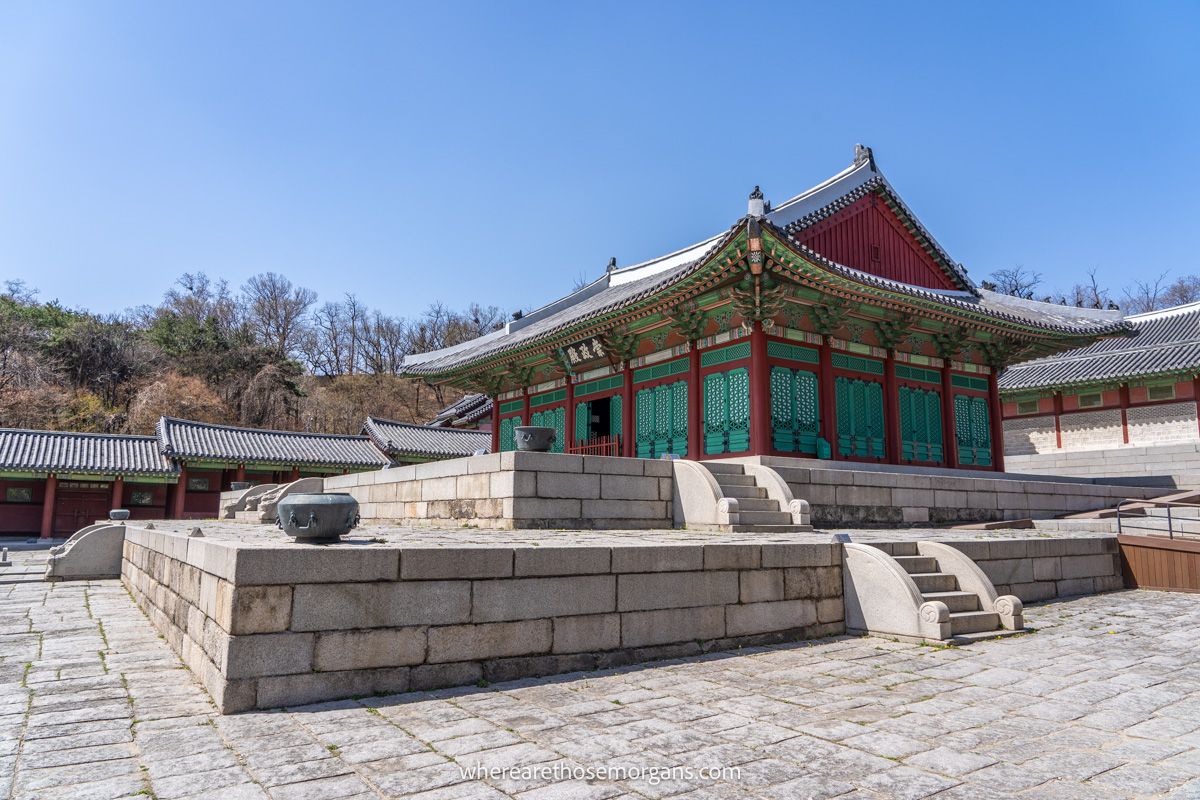
Constructed in 1618, Sungjeongjeon Hall is the main hall of Gyeonghuigung Palace. This is where the kings would meet with subjects in the morning and arrange official events. Additionally, the 20th King Gyeongjong, the 22nd King Jeongjo and the 24th King Heonjong all used this beautiful hall for their inauguration ceremonies.
Sungjeongjeon Hall was originally moved into Jogyesa Temple to avoid being damaged from the Japanese invasion. The hall we see today has been reconstructed by the Korean government on the original site.
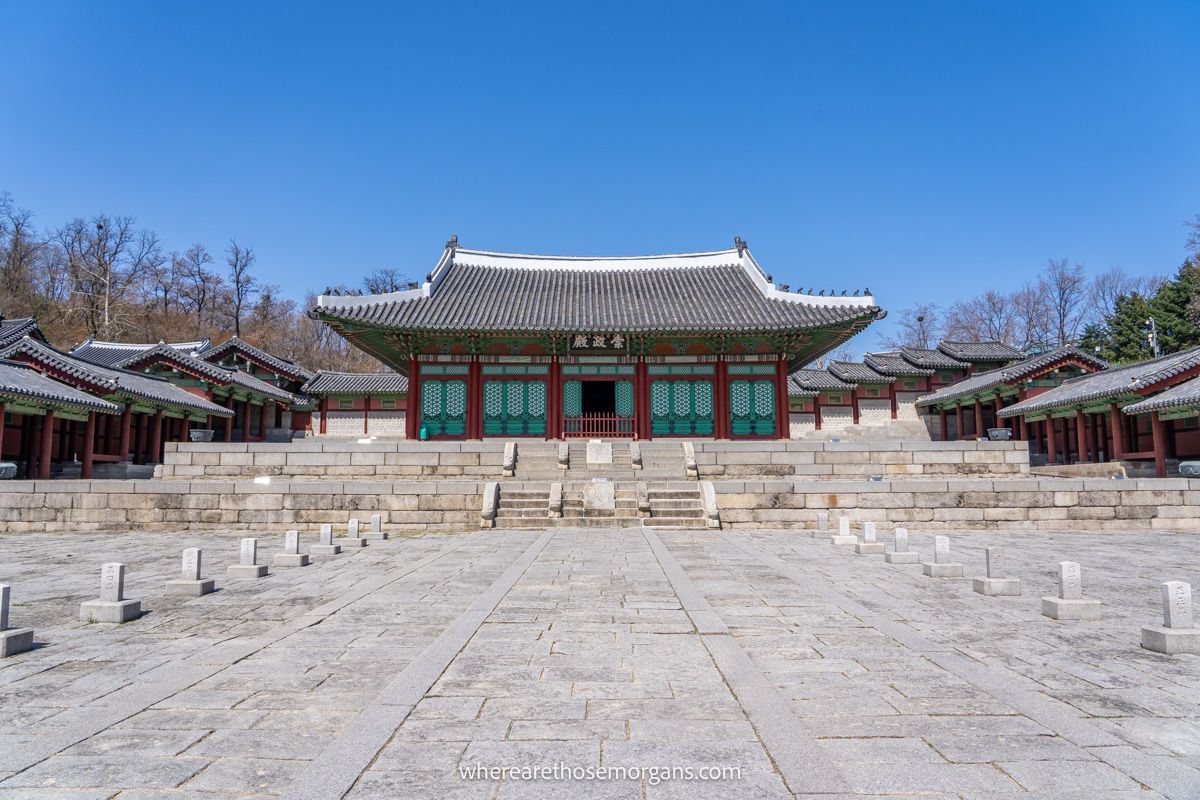
Travel Tip: The stone markers leading up to the hall indicated a certain official rank and individuals would stand next to their corresponding mark during royal rituals.
4. Jajeongjeon Hall
This colorful building was used as the king’s private living room. In Jajeongjeon Hall, the king would hold meetings and supervise academic competitions. Unfortunately, the original building was demolished by Imperial Japan and the building we see today has been restored according to historic sketches.
5. Taeryeongjeon Hall
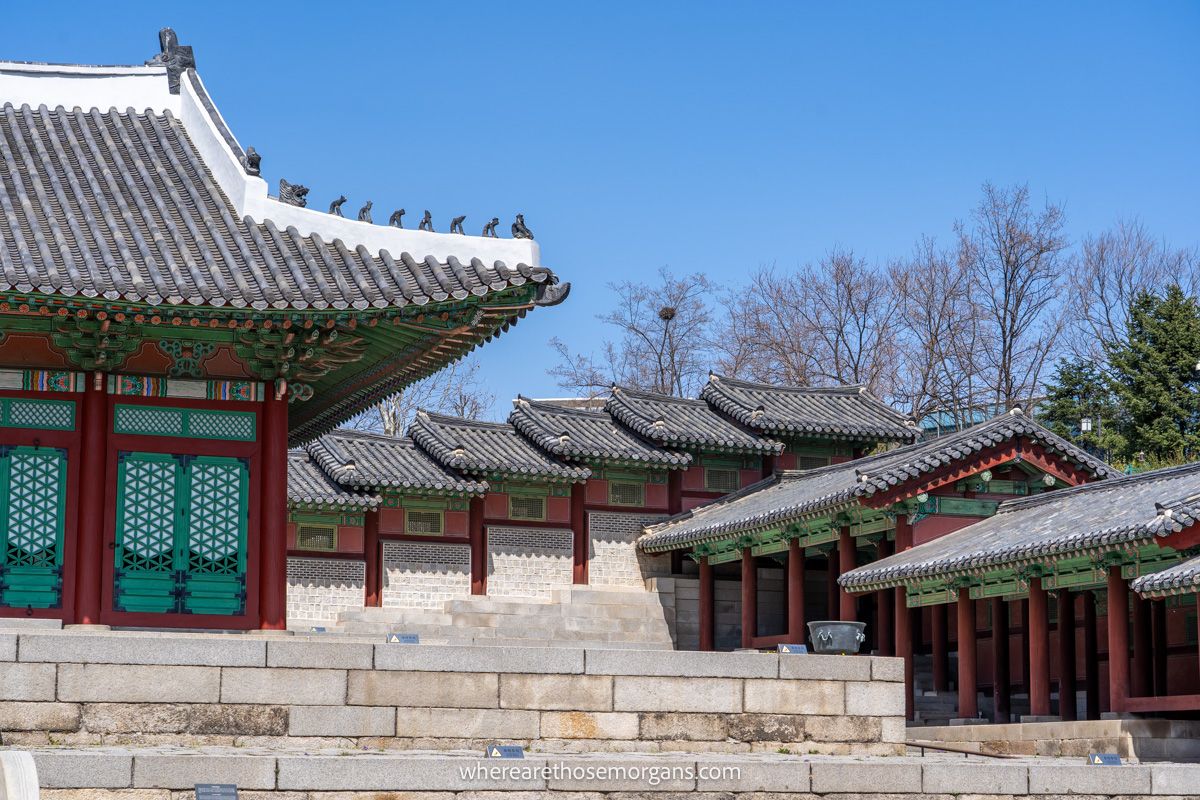
One of the most unique buildings tucked away in the back corner of Gyeonghuigung Palace and built in 1744, this structure was used to store King Yeongjo’s portrait. Similar to many other buildings in the complex, this hall was removed during the Japanese invasion, but it was restored in 2000 featuring five sections on the front and two sections on the side.
6. Seoam
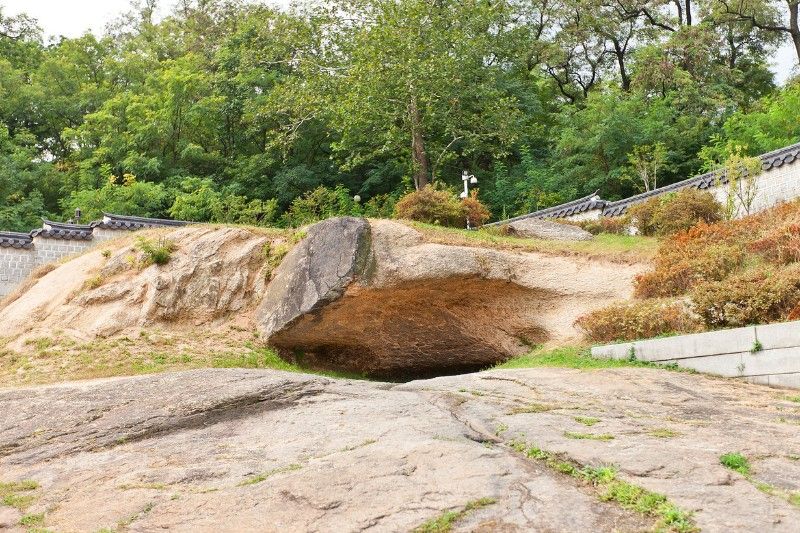
Originally referred to as Wangam, this rock can be found behind Taeryeongjeon Hall. Under the large boulder, visitors can sometimes see a stream of water running underneath the rock.
In 1708, King Sukjong changed the name to Seoam Rock which translateds to Propitious Rock during his 34th year in power. Interestingly, there was originally a stone table, known as Sabangseok, located nearby with Chinese characters personally engraved by King Sukjong, but it’s now missing.
The Morgan Conclusion
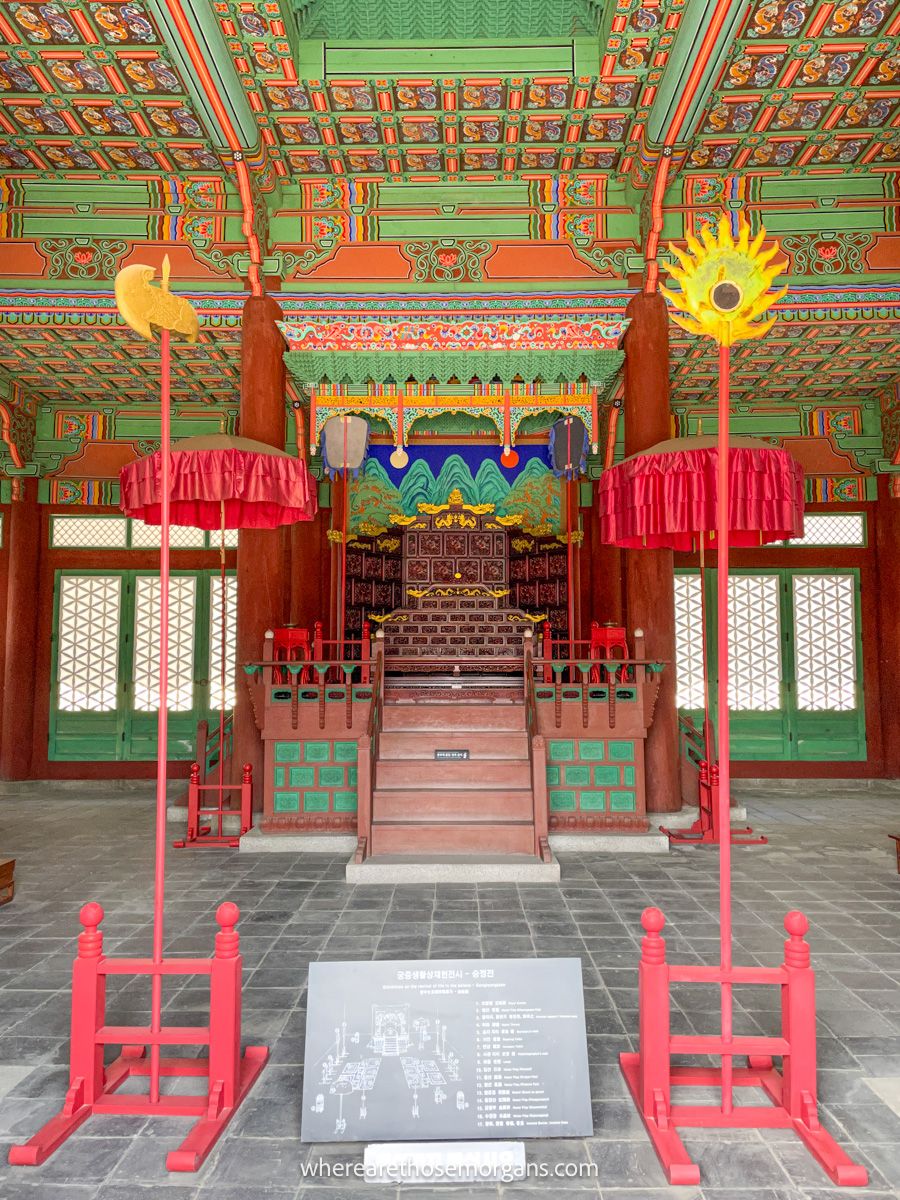
As a lesser known palace in Seoul, Gyeonghuigung showcases only a few restored buildings from the original complex, but it’s famous for providing a home to ten kings of the Joseon Dynasty. This is also the only royal palace in Seoul with free admission.
So is Gyeonghuigung Palace worth visiting?
Yes, Gyeonghuigung Palace is worth visiting because it’s one of the least visited palaces in Seoul and there are minimal crowds which makes it unique. You can also easily visit in under an hour because most of this palace has been destroyed by the Japanese invasion so it’s a very authentic reminder of the past.
However, it’s a tiny complex and we think other palaces are better when compared against each other. If you only have a few days in Seoul, we wouldn’t recommend Gyeonghuigung because you should visit one of the bigger palaces instead. But if you choose to visit, we recommend you try to see the Heunghwamun Gate, Geumcheongyo Bridge, Sungjeongjeon Hall, Jajeongjeon Hall, Taeryeongjeon Hall and Seoam.
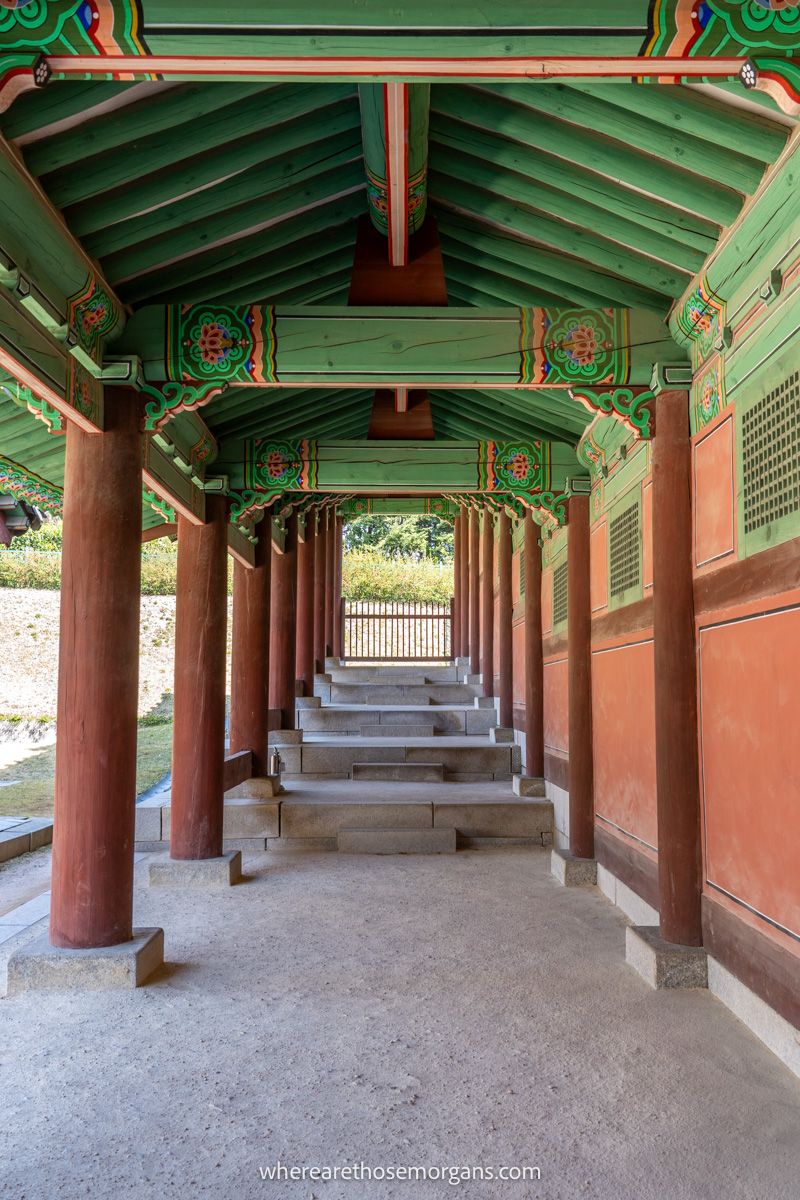
More Seoul Palaces
- What to see inside Gyeongbokgung Palace
- Complete visitor guide to Changdeokgung Palace
- How to visit Huwon Secret Garden
- Best things to do at Changgyeonggung Palace
- Deoksugung Palace visitor guide
- Best palaces in Seoul with pros and cons
Our Popular Seoul Guides
- 35 amazing things to see in Seoul
- Guide to finding the best DMZ Tour
- Best things to do in Imjingak Park
- How to visit N Seoul Tower in South Korea
- How to visit Seoul Sky observation deck
- What to see at the Jongmyo Shrine
- Complete guide to Seodaemun Prison
- 20 cool hotels in Seoul
Want more Seoul content? Head over to our South Korea Travel Guides to explore the very best of Seoul and beyond.
We hope this guide featuring the best things to do at Gyeonghuigung Palace helps with planning your visit to Seoul!
Please let us know if you have any questions about visiting this palace or Seoul in the comments below.
Happy Travels,
Mark and Kristen
Enjoy this Gyeonghuigung Palace guide? Pin it for your visit!
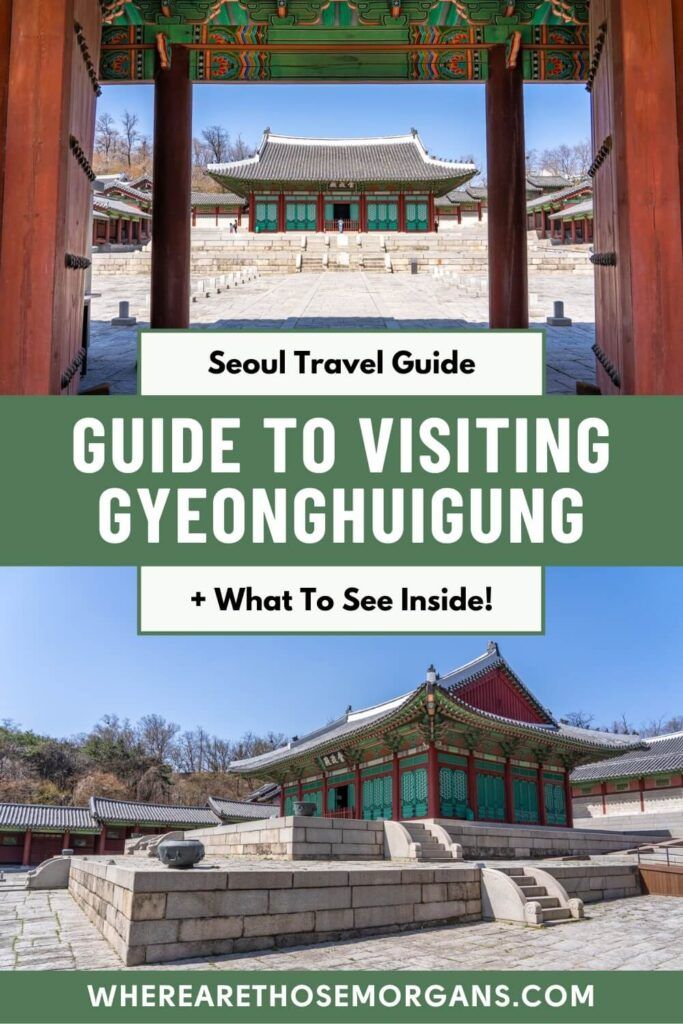
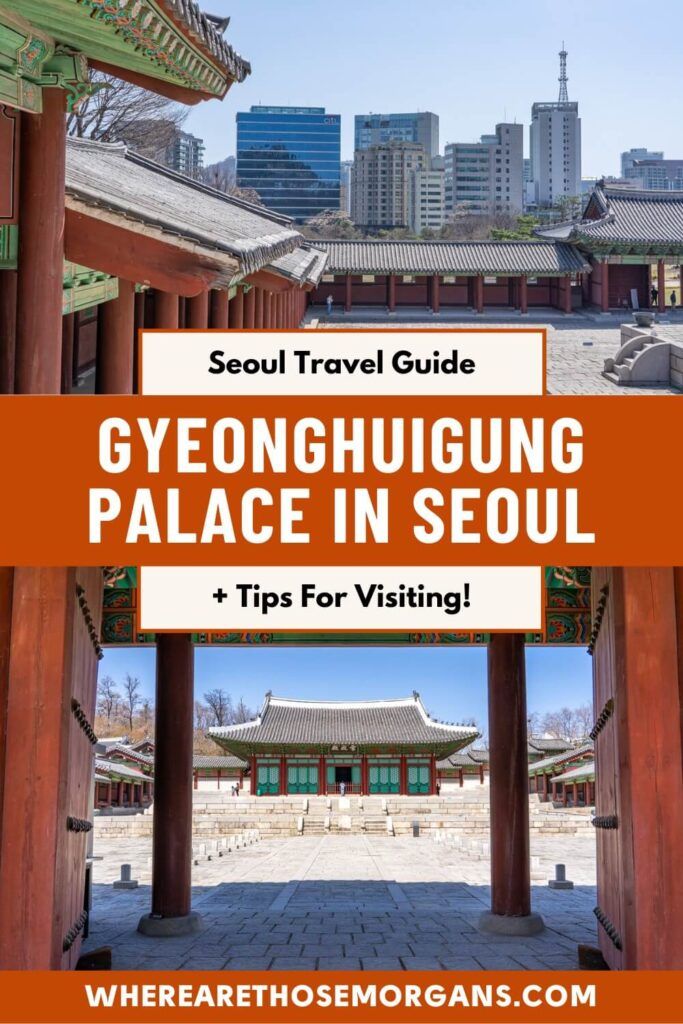
Note: This article contains affiliate links. When you make a purchase using one of these affiliate links, we may earn a small commission at no extra cost to you.
All Rights Reserved © Where Are Those Morgans, LLC. Republishing this article and/or any of its contents (text, photography, maps, graphics, etc.) in whole or in part is strictly prohibited.
Mark and Kristen Morgan are travel, hiking and photography experts. Over the last 6 years traveling full time, they have explored more than 40 countries and 30 US states.
Where Are Those Morgans has been featured in USA Today, Gestalten, Get Your Guide, CityPASS and Condé Nast Traveler along with various other publications. Read more about us.

